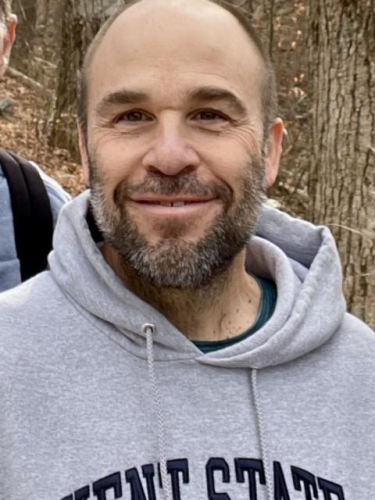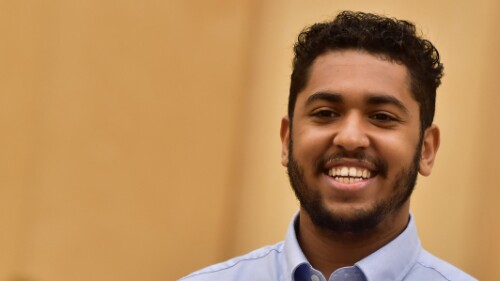At Kent State University, preparing future special educators goes far beyond teaching techniques—it’s about inspiring passion, resilience, and lifelong dedication. Few embody this spirit more fully than Dr. Andrew Wiley, a leader in special education and a champion for students and teachers alike.
A Lifelong Commitment to Special Education
Dr. Wiley’s journey in special education began early, volunteering at a special school where his mother worked as a speech therapist. Those formative experiences sparked a lasting passion for working with students with intellectual, developmental, emotional, and behavioral challenges.
After college, Dr. Wiley served as a paraprofessional supporting students with emotional and behavioral disorders. His dedication quickly propelled him to roles as a crisis resource teacher, itinerant autism resource specialist, and behavior intervention coach, always focused on helping teachers unlock the potential of every learner.
Recognizing the need for systemic change and more effective teacher preparation, Dr. Wiley pursued his Ph.D. in special education at the University of Virginia, followed by post-doctoral research at the University of Massachusetts, Boston. Today, he brings that depth of experience to Kent State University’s undergraduate and graduate special education programs, where he inspires students daily.
Read on to learn more about Dr. Wiley.
Can you share details about your current research activity?
My research focuses on controversial and complex issues in special education practice, policy, and teacher training. I have researched who is identified for special education and factors impacting access to services. Currently, I am examining how to responsibly support students with disabilities in general education classrooms and exploring efforts to improve their outcomes through approaches such as multi-tiered systems of support and universal design for learning. I am also examining issues related to reforming teacher education for special educators to make it more reliably effective and responsive to the needs of aspiring special educators. My primary research methods are research synthesis and critical rationality.
I am always eager to include students in my scholarship, both in its development and dissemination through conferences, journals, and other outlets.
Can you share your favorite memory from working with students?
I truly love what I do at Kent State. Many, many positive moments come to mind, lots of them just before or just after my students successfully complete their program or their degree. Honestly, one of my favorite memories occurred at the height of the COVID-19 pandemic, when everyone was hunkered down and anxious. It was such a strange time for students, faculty, and everyone everywhere.
I was teaching an online course on research-based practices that I had to develop on short notice. Near the end of the semester, I began receiving very personal emails from my students, expressing their appreciation for the course and, more importantly, for being supportive and caring and for doing my best to keep everyone connected. I received several emails – more than a third of the students enrolled in the course, and it really was a bright spot in a dark time, for both me and my students. Now, it’s possible that some very nice student or students communicated with each other and came up with the idea to send me some encouragement, I don’t know. Regardless, this is something I try to maintain to this day in all my online courses and workshops – frequent communication and feedback, being caring and supportive, giving students opportunities and resources for interaction, and to explore course content further. COVID was a tough time, but I really do believe I learned some things about excellence in online teaching.
Is there anything else you’d like to share about yourself?
In addition to my core coursework, I teach several online Kent State workshops that students seem to enjoy a lot. I teach a workshop on practical and effective classroom management strategies; math intervention for struggling learners, and multi-tiered systems of support for academic learning (response to intervention). I have such deep respect, energy, and enthusiasm for everyone involved in special education, teachers, families, and graduate students, everyone. Kids with disabilities are so, so important. Helping teachers teach them effectively is my passion and truly my life mission. And I have lots of fun pursuing that mission, and I always strive to help others feel that joy as well.
Join a Community of Changemakers at Kent State
Kent State’s online Master of Education in Special Education program is designed for individuals who share Dr. Wiley’s passion for student success and expanding access to high-quality education. Offered online with the flexibility working educators need, the M.Ed. program prepares graduates to lead, advocate, and inspire in different educational settings.
With expert faculty like Dr. Wiley guiding the way, Kent State graduates are equipped not just with knowledge but with the heart and resilience to make a lasting difference.
Ready to take the next step in your career—and your calling?
Learn more about Kent State’s Online M.Ed. in Special Education.









